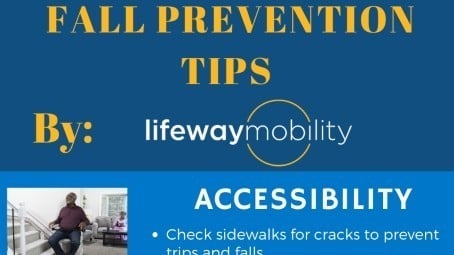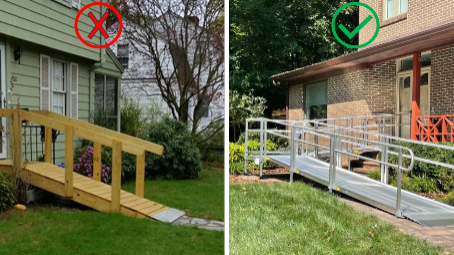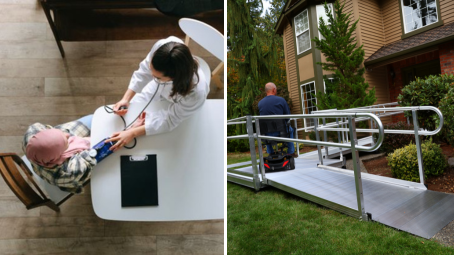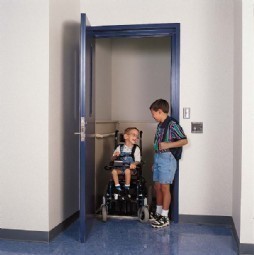Happy Holidays (2024) & New Year from Lifeway Mobility

Watch the Lifeway Mobility 2024 "Happy Holidays" Video:

Watch the Lifeway Mobility 2024 "Happy Holidays" Video:

“It’s the most wonderful time of the year!” The holiday season is officially here, bringing lots of joy and cheer to families and friends gathering for holiday events and parties

As we age, our home may not be as easy to navigate as it was years ago. Getting up and down a set of stairs may be a chore because of decline in mobility or weaker muscles. The risk of slipping and falling in the bathroom may be much higher, especially if there are no grab bars in the bathtub/shower, or near the toilet. An option for older adults that are having a difficult time getting around at home is a senior/assisted living facility. However, these types of facilities do not offer the familiarity and comfort that a home does. A home is full of memories from holidays and gatherings with family and lifelong friends.

Our home accessibility experts are invited into our client’s homes and into our local communities to evaluate for home accessibility solutions, such as stair lifts or wheelchair ramps or lifts. During our evaluations, we often encounter modifications that were done by another company or DIYs that do not meet ADA requirements, or are unsafe.

People diagnosed with cancer often require additional safety precautions to ensure that any health-related problems do not occur. Day-to-day activities that can be taken for granted will become harder. Simple things like cooking, cleaning, and even walking up the stairs may become strenuous, and even dangerous.

We wanted to share a recording of our webinar, "Tips from the Experts: Maintaining Independence at Home", for those who were unable to attend when it was presented live on October 28th, 2020.

Reports show that over 2 million people inure themselves in the bathroom each year, including in the shower and while using the toilet. Utilizing the shower, toilet ,and sink in the bathroom is essential to your lifestyle. Having a disability does not lessen the bathroom’s importance. Being able to maneuver around in the bathroom with a disability must be planned out and individualized for each homeowner. A rolling shower chair is a popular choice among the disabled. They make it easy to bathe, use the toilet and even wash their hands, brush their teeth, and take care of other hygiene activities.

If you have worked in or been to an elementary, middle, high school, or even a university lately, you may have noticed that there are many diverse situations that need to be accommodated for: wheelchairs, walkers, space for physical and occupational therapy, barrier-free playground equipment, etc. Many schools throughout the country are older and were not built with these accommodations in mind, and despite the Americans with Disabilities Act, some schools are not as compliant as they could be. So, if you are an administrator looking to adapt your school’s environment for students with disabilities or a parent wanting more access, read on for more tips on accessibility!
At some point, due to age or disability, you or a loved one may be faced with the prospect of having to use a wheelchair to assist in your primary mobility at home. Whether it be a temporary fixture to your home or something that will be more permanent, there are a number of simple modifications that can help improve accessibility and make life easier. If you are like most people, you live in a home that was not designed to accommodate wheelchairs. Below are some simple ideas on how to make sure that you will be able to stay in your home despite the necessity of a wheelchair.